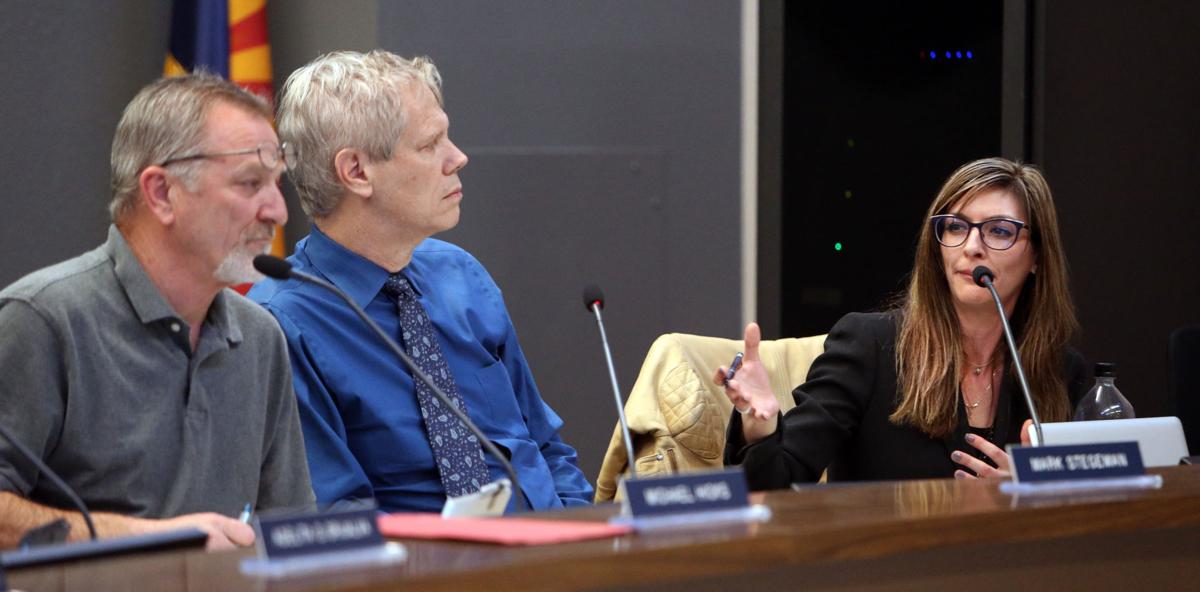The Arizona Attorney General’s Office has cleared the Tucson Unified School District in a pair of open-meetings complaints, but characterized Governing Board members’ actions as “ill advised” and in violation of the “intent” of the law.
The board was hit with a pair of open-meetings complaints last February, alleging that open-meetings laws had been violated.
One complaint alleged that board members Kristel Foster and Adelita Grijalva broke the open-meetings law when they ambushed board member Mark Stegeman in a parking lot as he attemped to meet with an attorney about firing former Superintendent H.T. Sanchez. Another claimed that board members Michael Hicks, Rachael Sedgwick and Stegeman violated the law by planning Sanchez’s ouster.
Assistant Arizona Attorney General Kevin Smith wrote in a letter of findings that there was no violation in either account. On the first charge, Smith described the parking-lot stunt as “ill advised,” saying similar confrontations should be avoided .
In his findings on the second allegation, Smith noted that while Sedgwick and Stegeman had communicated about Sanchez’s removal, a conversation between just two board members doesn’t violate the law — it has to be a majority of the five-member board.
“The crucial question is did they involve Board member Hicks in any such discussions,” Smith wrote, adding that “the evidence does not support a conclusion that this occurred.”
Smith noted that Stegeman said he was very aware of open-meetings law and was actively trying to avoid violating it, and did not involve Hicks in the discussion about Sanchez.
Smith pointed out that Hicks and Stegeman have served on the board together for years and certainly had some understanding of each other’s position on the topic, “but having a good idea of another member’s position and how they are likely to vote on an issue based upon past experience is not the same as discussing the issue with that member.”
And while it wasn’t specifically brought up in any complaint, the Attorney General’s Office found one area of the board’s communications “concerning.”
It said evidence shows that after Sedgwick won the election in November 2016, but before she was officially sworn in in January 2017, she, Stegeman,and Hicks all discussed issues that were certain to come before the board, including protocols and policies.
Smith cited an email from Stegeman stating, “I think it is legally OK to discuss these (issues) collectively before (Sedgwick is officially sworn in).”
While Stegeman’s logic was true to the letter of the law, the communications violated the law’s intent, which is to ensure that public officials don’t conduct public business in secret.
While the law doesn’t specifically state that it applies to members-elect, the Attorney General’s Office recommends as a best practice that public bodies treat the law as if it did.
“Mr. Hicks, Dr. Stegeman and Ms. Sedgwick clearly frustrated the spirit and purpose of the open meetings law. … They may not have violated the letter of the law, but they did violate it’s intent,” he wrote.





